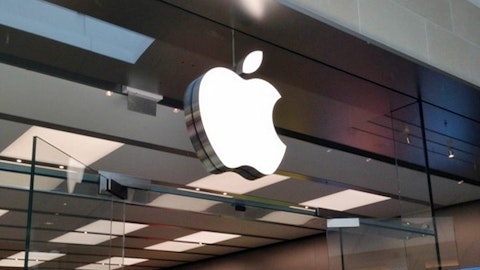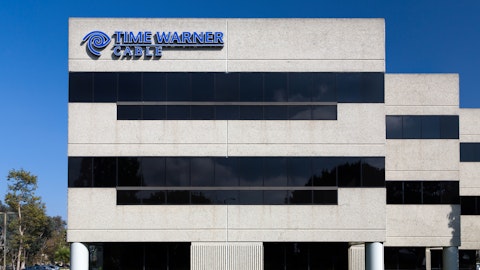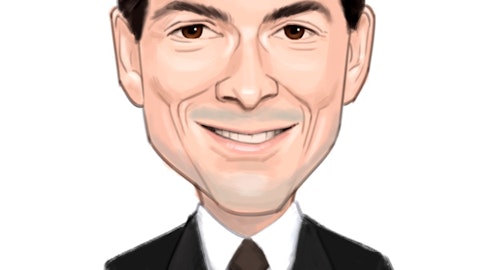Glaxis Capital Management LLC, a Sarasota, Florida-based hedge fund founded by Paul Holland and Matthew Miller in 2005, recently filed its 13F for the reporting period of June 30 with the Securities and Exchange Commission (SEC). The filing reveals that the fund has sold off its entire stake in 26 of the 31 companies it held during the previous reporting period as of the end of the March quarter, including big name companies like Apple Inc. (NASDAQ:AAPL), Amazon.com, Inc. (NASDAQ: AMZN), Netflix, Inc. (NASDAQ:NFLX), and Facebook Inc (NASDAQ:FB). Glaxis’ U.S. equity portfolio at the end of June was worth a mere $6.2 million and was comprised of positions in only five companies, compared to the $53.76 million in equities that it held at the end of March. When contacted by Insider Monkey regarding the broad sell-off of its portfolio, Glaxis’ Matthew Miller cited that near-term price targets had been reached for many of those positions, and that they felt a defensive posture was in order given seasonality and the current macroeconomic environment. We’ll take a look at these positions and the state of the companies and their stocks in this article. Note that we have calculated the returns of Glaxis’ stock picks for the second quarter at 1.7%, based on the weighted average returns of its holdings on March 31 in companies with a market cap of at least $1 billion. However, given that our metric is only an estimate at the best of times, and can vary greatly from a fund’s actual returns, in addition to the large turnover in Glaxis Capital’s portfolio, our figure must be taken with a heaping dose of salt.

Ken Wolter / Shutterstock.com
Professional investors like Paul Holland and Matthew Miller spend considerable time and money conducting due diligence on each company they invest in, which makes them the perfect investors to emulate. However, we also know that the returns of hedge funds on the whole have not been good for several years, underperforming the market. We analyzed the historical stock picks of these investors and our research revealed that the small-cap picks of these funds performed far better than their large-cap picks, which is where most of their money is invested and why their performances as a whole have been poor. Why pay fees to invest in both the best and worst ideas of a particular hedge fund when you can simply mimic the best ideas of the best fund managers on your own? A portfolio consisting of the 15 most popular small-cap stock picks among the funds we track has returned more than 139% and beaten the market by 81 percentage points since the end of August 2012, (see the details).
Follow Paul Vernon Holland's Glaxis Capital Management
Endo International plc – Ordinary Shares (NASDAQ:ENDP) ended up becoming Glaxis’ top pick following the June quarter, owing to the fund’s heavy dilution of its equity portfolio. Though the company’s shares fell by over 11% during the second quarter, Glaxis increased its stake in Endo International plc – Ordinary Shares (NASDAQ:ENDP) by over 16,000 shares to 30,860 shares valued at almost $2.5 million at the end of June. The company had a massive secondary offering of almost $2 billion of its ordinary shares in June, which may have been when Glaxis made their latest purchase. Among the hedge funds we track, Larry Robbins‘ Glenview Capital had the largest stake in Endo International plc – Ordinary Shares (NASDAQ:ENDP) at the end of the second quarter of 2015.
Even though Glaxis reduced its stake in Macquarie Infrastructure Corp (NYSE:MIC) by selling over 17,000 shares during the April-June period and the stock of the company remained flat during that time, the fund’s 26,100 shares valued at $2.16 million at the end of June vaulted it by default to become the fund’s second-largest holding. Analysts are bullish on the company, with an average rating of ‘Buy’ and an average price target of $97.67, almost 17% above its current trading price. Bernard Selz’s Selz Capital increased its stake in the company by 70% to nearly 1.0 million shares during the first quarter.
Glaxis exited from Apple Inc. (NASDAQ:AAPL), in which it had initiated a stake in the March quarter by purchasing 29,250 shares valued at $3.64 million as of March 31. Although shares of the world’s largest company remained flat during the second quarter, there are plenty of reasons to be bullish on the company such as analysts at Canaccord Genuity recently estimating that the company accounted for 92% of all the gains in the smartphone industry in the first quarter, while producing only 20% of all smartphones. Additionally, legendary activist investor Carl Icahn, who owned over 52 million shares of the company at the end of March, recently proclaimed that he thinks Apple’s stock is worth $240 right now, though his bullish proclamations have done little to aid the stock in recent months.
Just like Apple, Glaxis had initiated its stake in Netflix, Inc. (NASDAQ:NFLX) during the March quarter by purchasing 3,000 shares (pre-split) of the company valued at $1.25 million as of March 31, 2015. During the second quarter, shares of the streaming service rose by over 50%, hence Glaxis would have made a decent profit on its stake depending on how long it held it. Netflix, Inc. (NASDAQ:NFLX) declared its second quarter earnings yesterday, reporting that its global subscriber base has surpassed the 65 million mark. The EPS of $0.06 on revenues of $1.64 billion for the quarter came in better than analysts’ estimates of EPS of $0.05 on revenues of $1.6 billion. Carl Icahn’s Icahn Capital LP, which reported owning over 1.4 million shares of the company at the end of March, recently disclosed that it had sold its entire stake in the company as well. Both funds missed out on the tremendous 18% appreciation of shares today following the earnings release.
Glaxis had also initiated a stake in Amazon.com, Inc. (NASDAQ:AMZN) during the first quarter of the year, purchasing 2,000 shares during the quarter, valued at $744,000 at the end of March, which it sold off during the second quarter. The company concluded its much-hyped ‘Prime Day’ sale for Amazon Prime customers on July 15, and the initial indicators show that the sale was a hit among consumers, resulting in an even better selling day than Black Friday. Ken Fisher‘s Fisher Asset Management was the largest shareholder of Amazon.com, Inc. (NASDAQ:AMZN)’s shares as of March 31 among the hedge funds that we track, owning almost 2.5 million shares of the company.
Disclosure: None





